This is an image of an estuary near San Diego, California.
Click on image for full size
Cation Exchange in Groundwater
Groundwater often contains dissolved minerals, such as dissolved calcium, or magnesium, which come from the weathering.
As this water percolates through an aquifer, it may be modified and changed. In such an aquifer, calcium or magnesium in the water may be exchanged for sodium.
Eventually dissolved minerals are carried to the sea where these ions form salts. Thus sea water, the repository of dissolved material, especially carbonates, tends to be salty.
You might also be interested in:
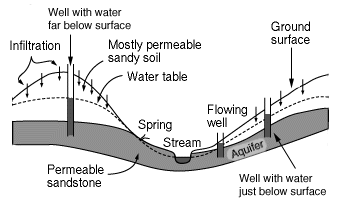
An aquifer is the name for a layer of rock which is capable of holding a large amount of water. Some layers are better at holding water than others, for example a layer of sandstone can hold a good deal
...more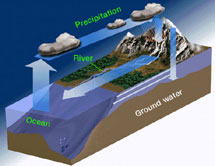
Limestone is an example of a carbonate. Other examples of carbonates include calcite, dolomite, and marble. Limestone dissolves easily in rainwater, especially rainwater which is loaded with carbonic acid.
...more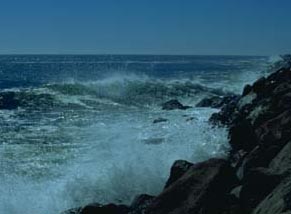
Have you ever left a glass of water out for a long time? Did you notice that the water disappears after a few days? That's because it evaporated! Evaporation is when water passes from a liquid to a gas.
...more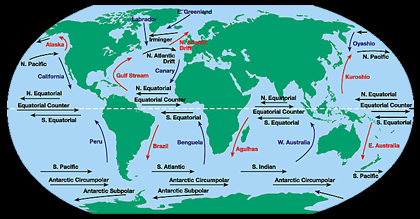
The water at the ocean surface is moved by powerful wind. The wind is able to move the top 400 meters of the ocean. This moving water is called surface ocean currents. Surface ocean currents form large
...more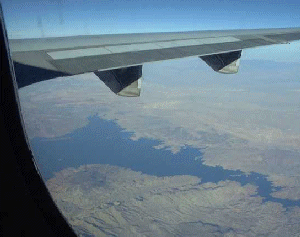
Rivers are very important to Earth because they are major forces that shape the landscape. Also, they provide transportation and water for drinking, washing and farming. Rivers can flow on land or underground
...more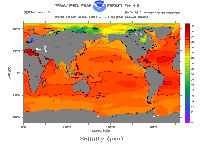
Almost 3/4 of the Earth is covered with water. Almost all of that water is in the oceans. Have you ever been swimming in the ocean? If you have and you accidentally got water in your mouth, you know the
...more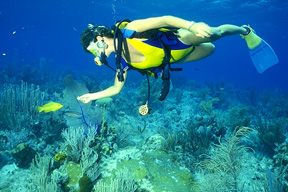
Do you know what scuba stands for? It means self-contained, underwater breathing apparatus. What does that mean? Well, it means that divers carry their air with them when they dive! There are different
...more















